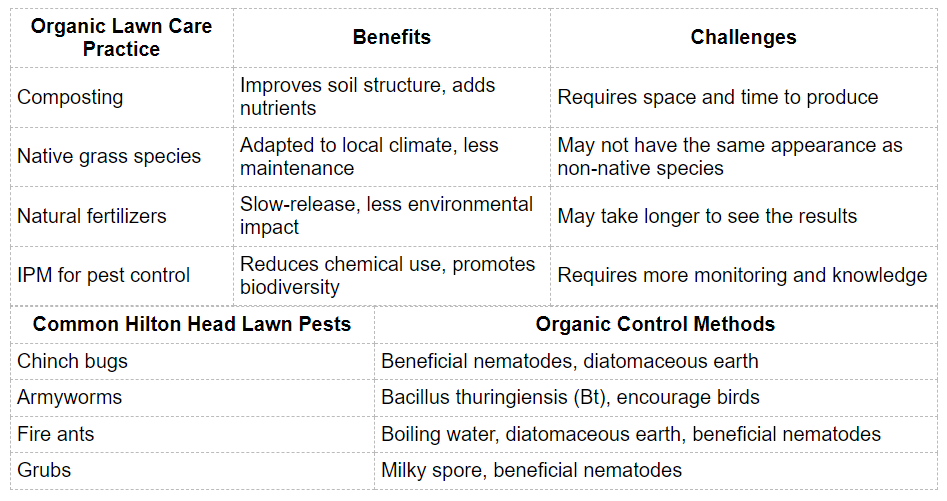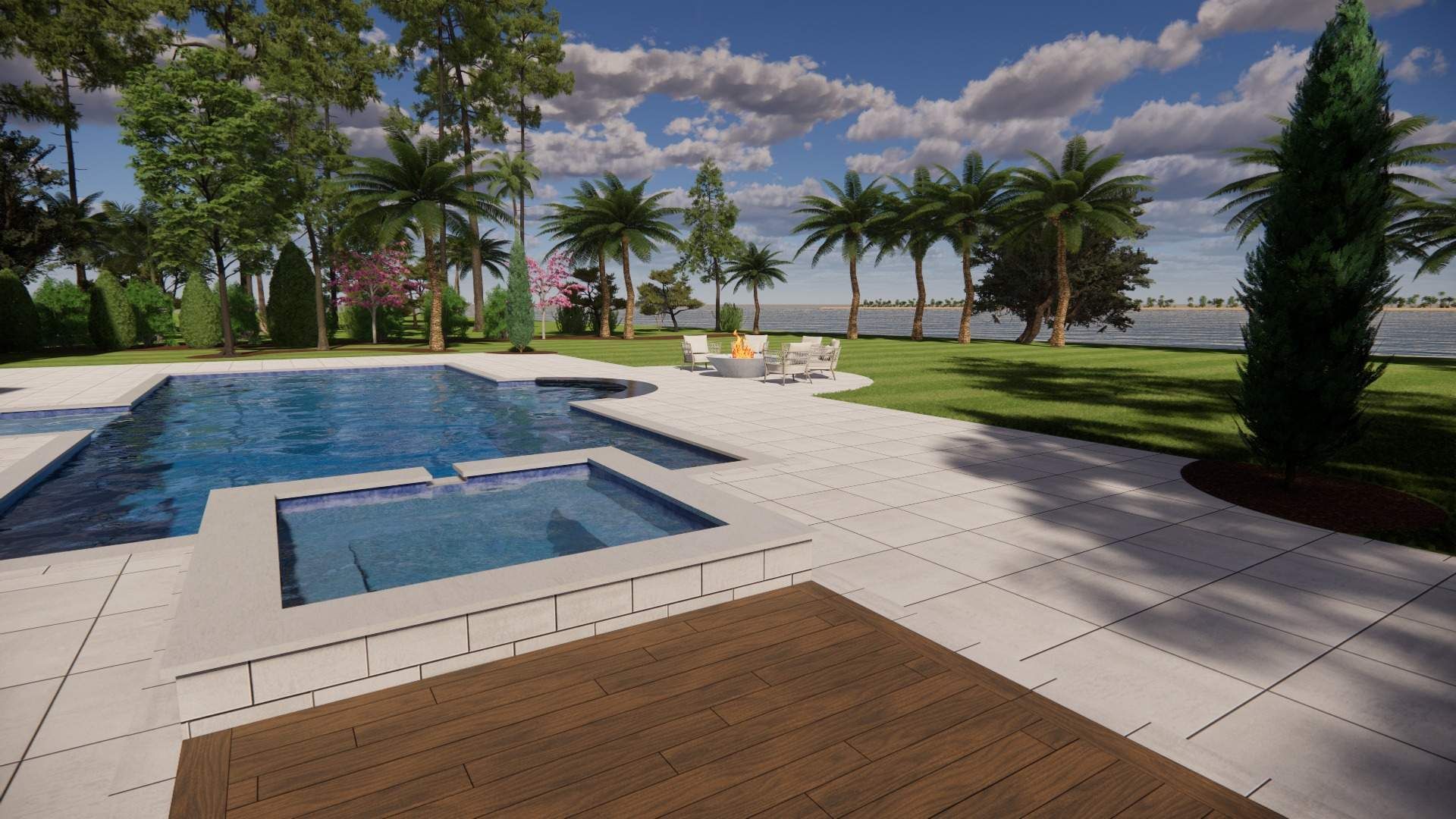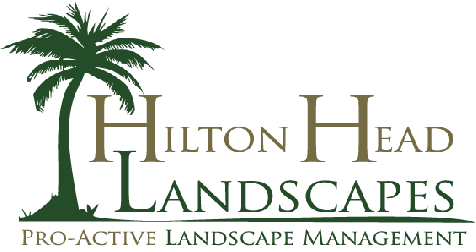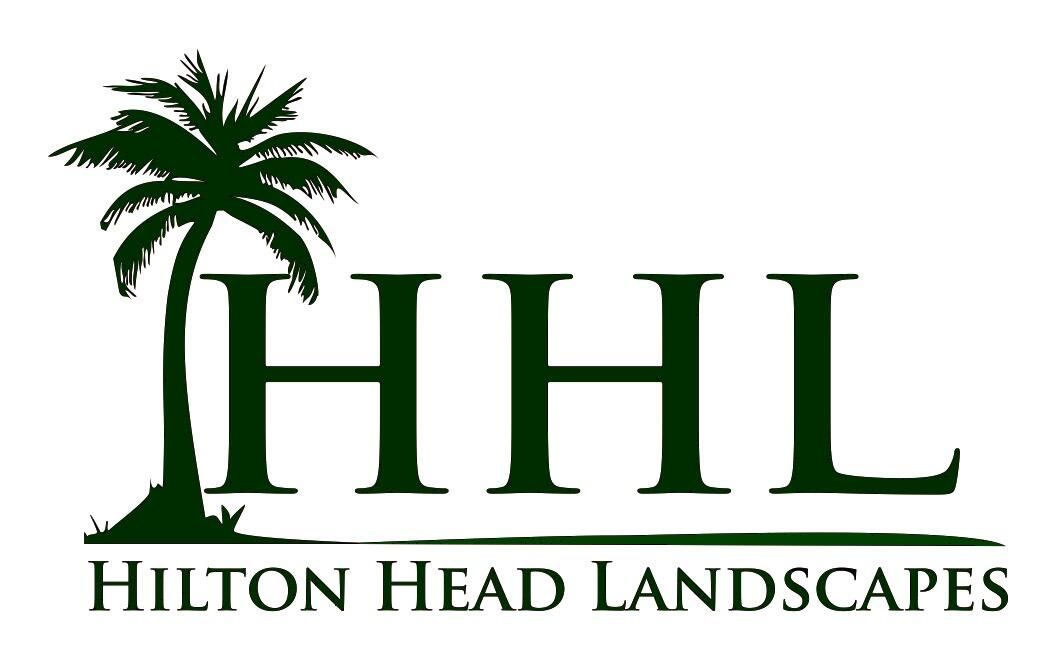Organic Lawn Maintenance: A Guide for Hilton Head Island Homeowners
Organic lawn maintenance is a natural approach to caring for your grass without using synthetic chemicals. Instead, it relies on ecological principles and organic materials to nurture a healthy, vibrant lawn. For Hilton Head Island residents, this method can be particularly beneficial due to our unique coastal environment and climate.
Key Takeaways:
- Organic lawn care uses natural methods instead of synthetic chemicals
- Soil health is the foundation of a thriving organic lawn
- Native grass species are better suited for Hilton Head's climate
- Natural fertilizers like compost and seaweed extract nourish the lawn
- Proper mowing and watering techniques are crucial for organic lawn health
- Integrated pest management helps control pests without harsh chemicals
- Patience is key when transitioning to organic lawn care methods
Understanding Organic Lawn Care Principles
Organic lawn maintenance is about working with nature, not against it. This approach focuses on building healthy soil, using natural fertilizers, and promoting beneficial organisms. By doing so, you create a lawn that's not only beautiful but also more resistant to pests, diseases, and drought.
The Role of Soil Health
Healthy soil is the cornerstone of organic lawn care. It's teeming with microorganisms that break down organic matter, release nutrients, and improve soil structure. On Hilton Head Island, our sandy soils can benefit greatly from organic matter additions to increase water retention and nutrient availability.
Choosing the Right Grass
Selecting grass species that thrive in Hilton Head's climate is crucial for organic lawn success. Warm-season grasses like Bermuda, Zoysia, and St. Augustine are well-suited to our hot summers and mild winters. These grasses naturally require less water and fertilizer, making them ideal for organic maintenance.
Transitioning to Organic Lawn Care
Switching to organic methods isn't an overnight process. It takes time for your lawn to adjust, but the long-term benefits are worth the patience.
Soil Testing and Preparation
Start by getting a soil test from Clemson University's Extension Service. This will give you a clear picture of your soil's pH and nutrient levels. Based on the results, you may need to add organic amendments like compost or lime to balance your soil.
Overseeding with Native Grasses
If your current lawn isn't thriving, consider overseeding with native grass species. Fall is the best time for this on Hilton Head Island, as the cooler temperatures and increased rainfall help seeds germinate.
Natural Fertilization Techniques
Organic fertilizers feed the soil, which in turn feeds your grass. They release nutrients slowly, reducing the risk of runoff and promoting steady, healthy growth.
Compost: Nature's Super Fertilizer
Compost is rich in nutrients and beneficial microorganisms. Apply a thin layer (about 1/4 inch) of compost to your lawn in spring and fall. This not only feeds your grass but also improves soil structure.
Seaweed Extract and Fish Emulsion
These natural fertilizers are packed with micronutrients and growth stimulants. They're especially beneficial for Hilton Head lawns, as they help grass tolerate salt spray and drought.
Mowing and Watering for Organic Lawns
Proper mowing and watering practices are essential for maintaining a healthy organic lawn.
Mowing Height and Frequency
Keep your mower blades sharp and set them high. For most warm-season grasses on Hilton Head, a height of 2-3 inches is ideal. Mow frequently enough that you're never removing more than 1/3 of the grass blade length.
Water Deeply and Infrequently
Deep, infrequent watering encourages deep root growth, making your lawn more drought-resistant. Water early in the morning to reduce evaporation and fungal growth.
Natural Pest and Weed Management
Organic lawn care doesn't mean letting pests and weeds run wild. It's about managing them naturally.
Integrated Pest Management (IPM)
IPM uses a combination of cultural, biological, and mechanical controls to manage pests. This might include encouraging beneficial insects, removing pest habitats, and using organic pesticides as a last resort.
Weed Control Without Chemicals
The best weed control is a healthy, dense lawn. For persistent weeds, hand-pulling or spot-treating with organic herbicides like vinegar or corn gluten meal can be effective.

Seasonal Organic Lawn Care Calendar
Tailoring your lawn care to Hilton Head's seasons is key to success.
Spring (March-May)
- Apply compost
- Overseed bare patches
- Begin mowing as the grass starts growing
Summer (June-August)
- Mow regularly, keeping grass slightly higher to retain moisture
- Water deeply during dry spells
- Monitor for pest issues
Fall (September-November)
- Apply organic fertilizer
- Overseed if necessary
- Reduce watering as temperatures cool
Winter (December-February)
- Reduce mowing frequency
- Remove fallen leaves to prevent smothering
- Plan for next year's lawn care
Common Challenges in Organic Lawn Care
Transitioning to organic methods can present some challenges. Here's how to address them:
Dealing with Thatch Buildup
Thatch is a layer of dead grass and roots between the soil and living grass. While some thatch is beneficial, too much can be problematic. Regular aeration and topdressing with compost can help manage thatch naturally.
Managing Fungal Diseases
Hilton Head's humid climate can encourage fungal growth. Proper watering practices, improving air circulation, and using organic fungicides like neem oil can help control fungal issues.

Here are some additional tips for organic lawn maintenance on Hilton Head Island:
- Use a mulching mower to return grass clippings to the lawn
- Install rain barrels to collect water for irrigation
- Plant native flowers and shrubs to attract beneficial insects
- Use organic lawn care products available at local garden centers
Source
- Organic lawn maintenance is an eco-friendly alternative to traditional methods using synthetic fertilizers and pesticides. Here are some effective strategies:
- Mowing Correctly: Keep grass height between 2.5 to 3 inches. Regular mowing helps prevent weed growth and encourages deep-root growth. (University of Minnesota Extension)
- Aerating Regularly: Aerate your lawn every year to improve soil structure and allow water, oxygen, and nutrients to reach the roots. (Cornell University Cooperative Extension)
- Fertilizing Organically: Use natural fertilizers like compost, bone meal, and feather meal to provide essential nutrients. (EPA)
- Controlling Weeds: Use natural methods like mulching, hand-pulling, and smothering with fabric or cardboard. (Cornell University Cooperative Extension)
- Pest Control: Encourage beneficial insects and use organic pesticides like neem oil, diatomaceous earth, and insecticidal soap. (Cornell University Cooperative Extension)
Embracing Organic Lawn Care on Hilton Head Island
Organic lawn maintenance is more than just avoiding chemicals; it's a holistic approach to creating a healthy, sustainable landscape. While it may require more patience and effort initially, the long-term benefits for your lawn, the environment, and Hilton Head's unique ecosystem are significant. By working with nature and understanding the specific needs of our coastal climate, you can create a beautiful, resilient lawn that thrives without synthetic inputs. Remember, every organic lawn is a step towards a healthier, more sustainable Hilton Head Island. For more information, you can visit our website or contact us.



